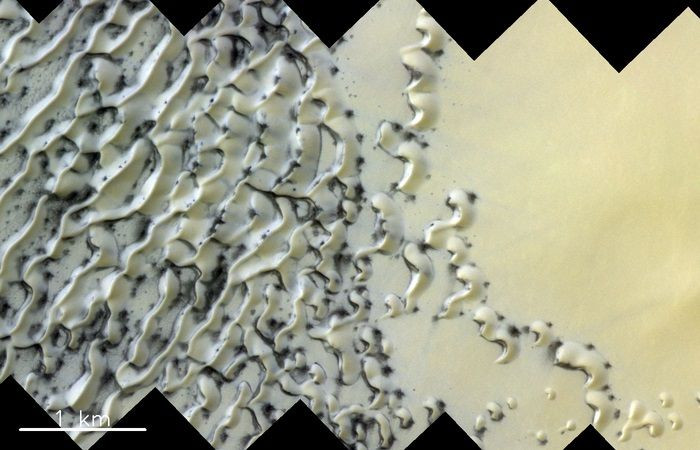NASA Photo Captures Proof Of Insects On Mars, Scientist Claims

The search for extraterrestrial life may well be over, at least according to an entomologist from Ohio University.
Per a report from CNET, University Professor Emeritus William Romoser presented a study detailing evidence of not just fossilized life, but also actual insect life on Mars during the national meeting of the Entomological Society of America on Nov. 19.
The study consisted of a poster with shots taken from various Mars rovers with annotations made by Dr. Romoser identifying figures within the images as actual insects and not just mere rocks.
The professor states, in his poster entitled "Does Insect/Arthropod Biodiversity Extend Beyond Earth?" that “...this is the first professional report of direct evidence of identifiable life forms beyond the confines of Earth...”
He goes on to say that many biologists would not be too surprised to find carbon-based life forms on other planets, based on the current body of knowledge available on evolution and the general function of living organisms.
The Ohio University also released a press statement on their website on Dr. Romoser’s presentation. The statement noted the gravity of the presentation, should it prove to be verifiable, and also added that the images were in no way manipulated or edited aside from Romoser’s annotations, adding validity to the study.
Dr. Romoser’s poster depicts potential evidence of insect-like forms very similar in structure to those of bees — specifically bumble and carpenter bees here on Earth. The professor’s annotations outline the various body parts of the structure, including a head, a thorax and abdomen, and even the wings of the insect.
“Three-body regions, a single pair of antennae, and six legs are traditionally sufficient to establish identification as ‘insect’ on Earth,” Dr. Romoser said. The scientist used this method of identification as a way to conclude the possibilities of insect life on the Red Planet.
The CNET report isn’t so quick to agree, however. It argued that Dr. Romoser’s study is nothing more than mere pareidolia. The current Mars rovers have yet to discover the presence of life on the planet which lends credibility to the possibility of Mars being sterile.
Also pointed out was the lack of formality in Dr. Romoser’s presentation that makes his claims and evidence suspect.
Dr. Romoser is a specialist in arbovirology and general/medical entomology and has been a professor of entomology at Ohio University for forty-five years. He is the co-founder of the university’s Tropical Disease Institute and co-author of the textbook "The Science of Entomology."
© Copyright IBTimes 2024. All rights reserved.





















